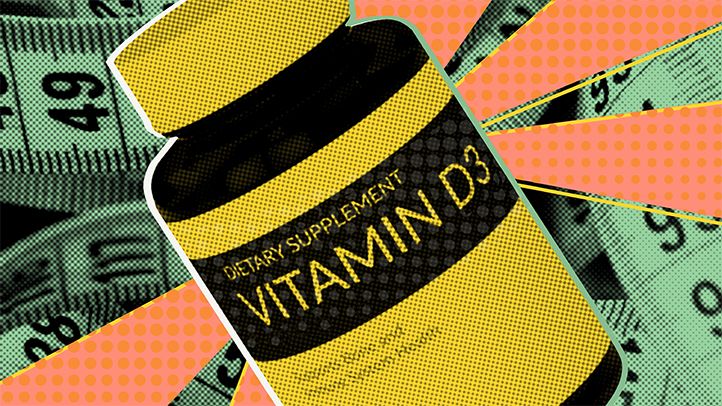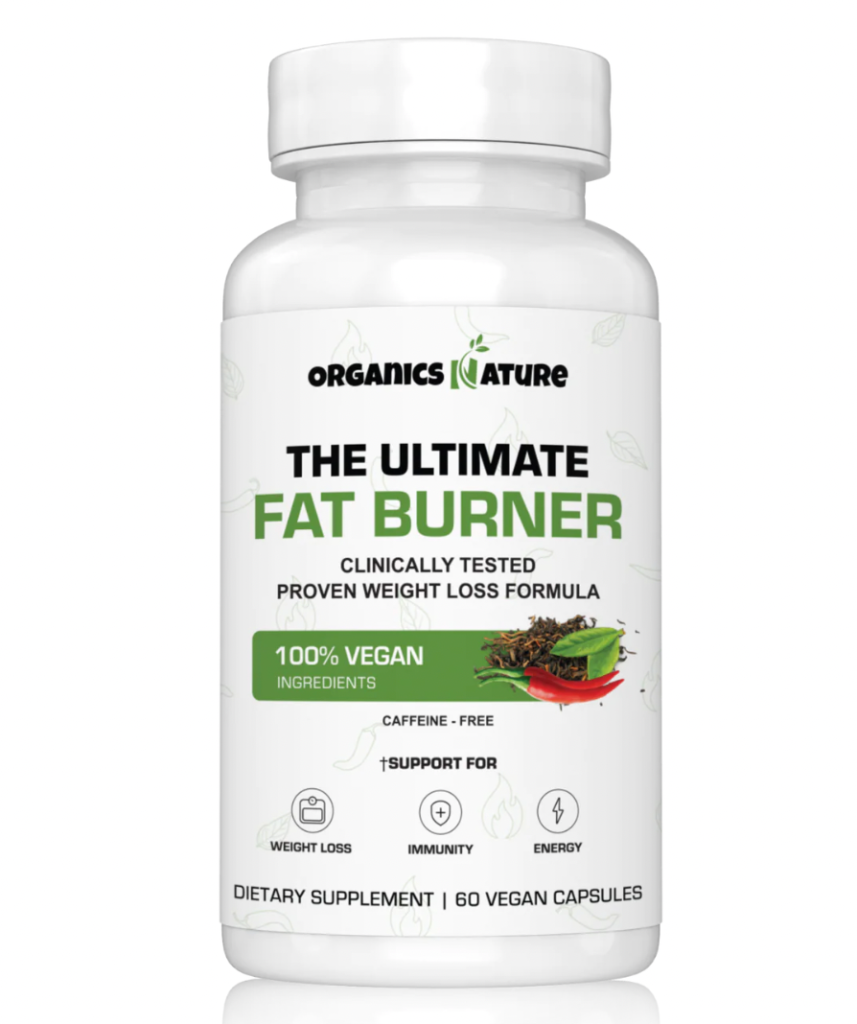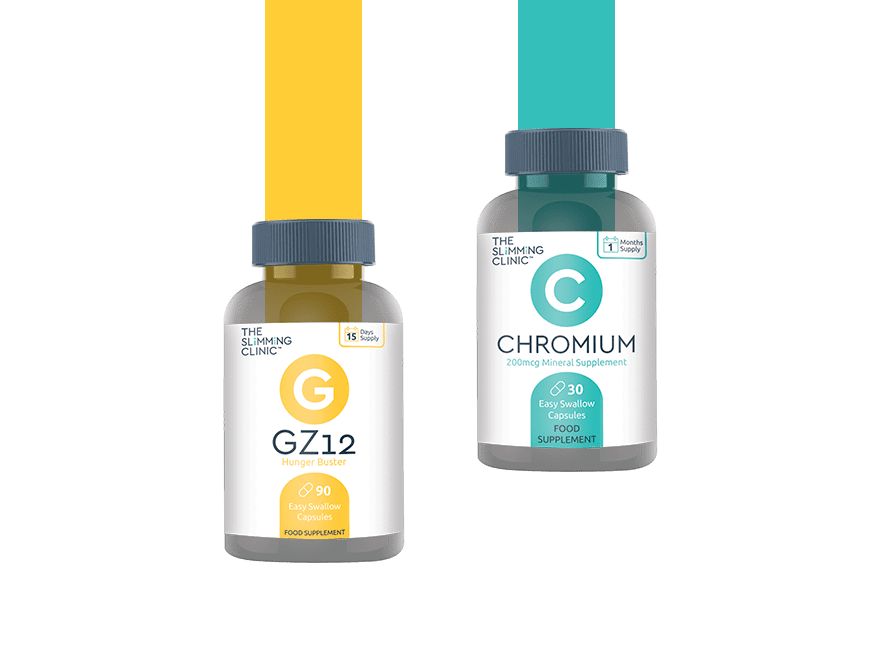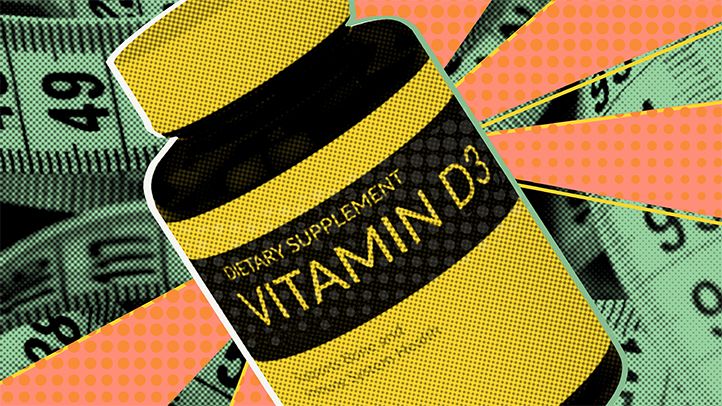
Looking to shed some pounds and improve your overall health? Look no further than the power of vitamins! In this article, we explore how incorporating specific vitamins into your daily routine can not only enhance your well-being but also aid in your weight loss journey. From boosting metabolism to curbing cravings, these essential nutrients are a game-changer when it comes to achieving your desired weight and feeling your absolute best. Get ready to unlock the secrets of vitamins for weight loss and embark on a transformative journey to a healthier you.

This image is property of thumbor.forbes.com.
Scientists Discover A Hidden Root Cause Of Stubborn Belly Fat, And It Will Surprise You…
Importance of Vitamins for Weight Loss
In our quest for weight loss, we often focus on counting calories and hitting the gym, but we may overlook the critical role that vitamins play in our health and weight management. Vitamins are essential nutrients that our bodies need in order to perform various functions, and they can also aid in weight loss. Understanding the role of vitamins in the body and how they can support our weight loss goals is crucial for maintaining a healthy and balanced lifestyle.
Understanding the Role of Vitamins in the Body
Vitamins are organic compounds that our bodies need in small amounts to function properly. They are essential for the growth, development, and maintenance of our bodies. Vitamins serve as catalysts for many biochemical reactions that occur within our cells, ensuring that our bodies can effectively convert food into energy and use it for various bodily processes.
Each vitamin has a specific role to play. For example, vitamin D helps regulate calcium and phosphorus levels, while vitamin C is essential for collagen synthesis and immune function. By ensuring that we have an adequate intake of vitamins, we can optimize our overall health and well-being.

This image is property of theslimmingclinic.com.
The Secret For Healthy Weight Loss…Click Here…
How Vitamins Can Aid in Weight Loss
When it comes to weight loss, vitamins can offer significant benefits. Firstly, vitamins are involved in the metabolism of macronutrients, such as carbohydrates, fats, and proteins. They help convert these nutrients into usable energy, supporting the body’s metabolic processes. By ensuring that our bodies have the necessary vitamins, we can enhance our metabolism and improve our overall energy levels.
Furthermore, certain vitamins can directly impact our weight loss efforts. For example, vitamin D has been linked to weight regulation and fat metabolism. Adequate vitamin D levels may help prevent weight gain and support weight loss by assisting in the breakdown and elimination of fat cells. By incorporating vitamins into our weight loss journey, we can enhance the effectiveness of our efforts and achieve better results.
Common Vitamin Deficiencies and their Impact on Weight
Vitamin deficiencies are more common than we might think, and they can have a significant impact on our weight. Certain vitamins play a crucial role in maintaining a healthy body weight, and a deficiency in these vitamins can hinder our weight loss progress.
For example, vitamin D deficiency has been associated with weight gain and obesity. Studies have shown that individuals with low vitamin D levels are more likely to have higher body mass index (BMI) and experience difficulties in losing weight. Similarly, deficiencies in vitamins B12 and C have also been linked to weight gain and metabolic disturbances.
It is important to address these deficiencies and ensure we are getting adequate amounts of essential vitamins to support our weight loss goals. Consulting with a healthcare professional or a registered dietitian can help identify any potential deficiencies and develop a plan to correct them.

This image is property of c.ndtvimg.com.
The Link Between Poor Nutrient Intake and Weight Gain
Poor nutrient intake is a common issue in today’s fast-paced society. With busy lifestyles, it can be challenging to prioritize a well-balanced diet, resulting in inadequate nutrient intake. This can have a detrimental impact on our weight and overall health.
When we do not consume enough vitamins and minerals, our bodies may enter a state of nutrient deficiency. This deficiency can lead to various health issues and hinder our weight loss efforts. For example, a lack of vitamin B12 can lead to fatigue and a sluggish metabolism, making it more challenging to exercise and burn calories effectively.
Furthermore, when our bodies are deficient in nutrients, we may experience increased cravings for unhealthy foods. These nutrient-depleted cravings often lead to overeating and weight gain. By prioritizing a nutrient-rich diet and ensuring we are consuming an adequate amount of vitamins, we can support our weight loss goals and promote overall health and well-being.
Key Vitamins for Weight Loss
Now that we understand the importance of vitamins in our weight loss journey, let’s explore some key vitamins that can specifically aid in our efforts to shed those extra pounds.
Vitamin D
Vitamin D plays a crucial role in weight regulation and fat metabolism. Studies have shown that individuals with sufficient vitamin D levels are more likely to have a healthy body weight and experience better weight loss results. Vitamin D can increase the expression of certain genes involved in fat breakdown and inhibit the formation of new fat cells. Ensuring an adequate intake of vitamin D through sunlight exposure and dietary sources can support our weight loss efforts.
Vitamin B12
Vitamin B12 is essential for maintaining a healthy metabolism. It plays a key role in the breakdown of fats and proteins, as well as the production of red blood cells. A deficiency in vitamin B12 can lead to fatigue and a sluggish metabolism, making it harder to burn calories and lose weight. Including food sources rich in vitamin B12, such as meat, fish, eggs, and dairy products, can help support our weight loss goals.
Vitamin C
Vitamin C is not only vital for immune function but also plays a role in weight loss. This vitamin has been shown to enhance fat oxidation during exercise, meaning it helps our bodies burn fat more efficiently. Additionally, adequate vitamin C levels can support our energy levels, making it easier to engage in physical activity and maintain an active lifestyle. Including citrus fruits, berries, and leafy greens in our diet can provide us with the necessary vitamin C for weight loss.
Vitamin E
Vitamin E is known for its antioxidant properties, but it can also support weight loss efforts. This vitamin helps protect our cells from damage and inflammation, which can impede weight loss progress. Furthermore, vitamin E has been shown to improve insulin sensitivity, promoting better blood sugar control and weight management. Incorporating sources of vitamin E, such as nuts, seeds, and vegetable oils, into our diet can assist in our weight loss journey.
Vitamin K
Vitamin K is essential for blood clotting and bone health, but it also plays a role in weight management. This vitamin helps regulate calcium, which is involved in the metabolism of fat cells. Adequate vitamin K levels have been associated with lower body fat percentages, while a deficiency can lead to increased fat accumulation. Including leafy green vegetables, such as spinach and kale, can provide us with the necessary vitamin K for weight loss.
B Vitamins Complex
The B vitamins, including B1, B2, B3, B5, B6, B7, B9, and B12, are collectively referred to as the B vitamins complex. These vitamins are involved in various metabolic processes, including the breakdown of carbohydrates, fats, and proteins. They also support the conversion of food into energy, which is crucial for weight loss. Including sources of B vitamins, such as whole grains, legumes, eggs, and leafy greens, in our diet can optimize our metabolism and aid in weight loss.
Vitamin A
Vitamin A plays a role in body composition and fat metabolism. It helps regulate gene expression involved in fat cell development and can support the breakdown of fat cells. Including food sources rich in vitamin A, such as carrots, sweet potatoes, and leafy greens, can provide us with the necessary vitamin A for weight loss.
Vitamin B6
Vitamin B6 is involved in various metabolic processes, including the metabolism of carbohydrates and amino acids. It also plays a role in neurotransmitter synthesis and immune function. Adequate levels of vitamin B6 can help support a healthy metabolism and assist in weight loss efforts. Including sources of vitamin B6, such as poultry, fish, bananas, and whole grains, in our diet can contribute to our weight loss goals.
Vitamin Supplements vs. Whole Foods
While vitamin supplements can be beneficial in certain cases, it is generally recommended to obtain essential vitamins from whole foods. Whole foods provide a wide range of nutrients, including vitamins, minerals, fiber, and antioxidants, that work together synergistically to support our overall health. Additionally, whole foods are often more bioavailable and easier for our bodies to absorb compared to supplements.
However, in cases where an individual has a specific deficiency or is unable to meet their vitamin requirements through diet alone, supplements may be necessary. It is important to consult with a healthcare professional before starting any supplementation regimen to ensure proper dosage and safety.

This image is property of i0.wp.com.
Vitamin D for Weight Loss
The Role of Vitamin D in Weight Regulation
Vitamin D plays a crucial role in weight regulation. It has been shown to influence the expression of certain genes involved in the breakdown and storage of fat cells. Additionally, vitamin D deficiency has been associated with weight gain and obesity. Adequate vitamin D levels can help support weight loss efforts by promoting the breakdown and elimination of fat cells.
Sources of Vitamin D
The primary source of vitamin D is sunlight exposure. When our skin is exposed to sunlight, it triggers the production of vitamin D in our bodies. However, factors such as geographic location, season, and skin type can affect our ability to produce vitamin D from sunlight alone.
Food sources of vitamin D include fatty fish like salmon and mackerel, fortified dairy products, and fortified cereals. Including these foods in our diet can help ensure we are getting enough vitamin D for weight loss.
Recommended Daily Intake
The recommended daily intake of vitamin D varies depending on factors such as age, sex, and overall health. For most adults, the recommended daily intake is between 600 and 800 international units (IU). However, it is important to consult with a healthcare professional to determine the appropriate dosage for individual needs.
Vitamin D Supplements for Weight Loss
In cases where individuals are unable to obtain sufficient vitamin D through sunlight exposure and diet alone, vitamin D supplements may be necessary. Supplements can help ensure we are meeting our daily requirements and support weight loss efforts. However, it is crucial to consult with a healthcare professional before starting any supplementation regimen to determine the appropriate dosage and monitor for potential side effects.
Potential Side Effects and Precautions
While vitamin D supplementation is generally safe when taken within the recommended dosage range, it is important to be aware of potential side effects and precautions. Taking excessive amounts of vitamin D can lead to toxicity, causing symptoms such as nausea, vomiting, and weakness. It is important to follow dosage guidelines and consult with a healthcare professional to avoid any adverse effects.
Individuals with certain medical conditions, such as hypercalcemia or kidney disease, may need to be cautious when taking vitamin D supplements. It is important to discuss any pre-existing conditions with a healthcare professional before starting any supplementation regimen.
Vitamin B12 for Weight Loss
The Importance of Vitamin B12 in Metabolism
Vitamin B12 is essential for maintaining a healthy metabolism. It plays a crucial role in the breakdown of carbohydrates, fats, and proteins, converting them into usable energy. Additionally, vitamin B12 is involved in the production of red blood cells, which carry oxygen throughout the body.
A deficiency in vitamin B12 can lead to fatigue, weakness, and a sluggish metabolism. These factors can make it harder to exercise and burn calories effectively, hindering our weight loss efforts.
Food Sources of Vitamin B12
Vitamin B12 is primarily found in animal-based foods, making it a challenge for vegans and vegetarians to obtain sufficient amounts. Rich sources of vitamin B12 include meat, fish, eggs, and dairy products. Including these foods in our diet can help ensure we are getting enough vitamin B12 for weight loss.
For individuals following a vegan or vegetarian diet, fortified plant-based foods and supplements can provide an alternative source of vitamin B12.
Recommended Daily Intake
The recommended daily intake of vitamin B12 varies depending on factors such as age, sex, and overall health. For most adults, the recommended daily intake is 2.4 micrograms. However, it is important to consult with a healthcare professional to determine the appropriate dosage for individual needs.
Supplementing with Vitamin B12 for Weight Loss
In cases where individuals are unable to obtain sufficient vitamin B12 through diet alone, supplementation may be necessary. Vitamin B12 supplements are available in various forms, including tablets, capsules, and sublingual (under the tongue) sprays. These supplements can help ensure we are meeting our daily requirements and support our weight loss goals.
It is important to consult with a healthcare professional before starting any supplementation regimen to determine the appropriate dosage and monitor for potential side effects.
Possible Side Effects and Considerations
Vitamin B12 supplementation is generally safe when taken within the recommended dosage range. However, it is important to be aware of potential side effects and considerations.
In rare cases, individuals may experience allergic reactions or digestive issues when taking vitamin B12 supplements. It is important to discontinue use and consult with a healthcare professional if any adverse effects occur.
Additionally, individuals with certain medical conditions, such as kidney or liver disease, may need to be cautious when taking vitamin B12 supplements. It is important to discuss any pre-existing conditions with a healthcare professional before starting any supplementation regimen.

This image is property of images.everydayhealth.com.
Vitamin C for Weight Loss
The Impact of Vitamin C on Fat Oxidation and Energy Levels
Vitamin C not only plays a crucial role in supporting our immune system but can also have a positive impact on our weight loss efforts. This vitamin has been shown to enhance fat oxidation during exercise, meaning it helps our bodies burn fat more efficiently. By increasing fat oxidation, vitamin C can contribute to weight loss and improve body composition.
Additionally, vitamin C supports our energy levels, making it easier to engage in physical activity and maintain an active lifestyle. Regular exercise is essential for weight loss, and vitamin C can provide that extra boost of energy to help us stay motivated and achieve our goals.
Food Sources Rich in Vitamin C
Vitamin C is abundantly found in various fruits and vegetables. Citrus fruits, such as oranges and grapefruits, are excellent sources of vitamin C. Other fruits, including strawberries, kiwi, and pineapple, also provide significant amounts of this vitamin. Vegetables like bell peppers, broccoli, and kale are also rich in vitamin C.
Incorporating these fruits and vegetables into our diet can ensure we are getting enough vitamin C for weight loss and overall health.
Optimal Daily Intake of Vitamin C
The recommended daily intake of vitamin C varies depending on factors such as age, sex, and overall health. For most adults, the recommended daily intake is around 75 to 90 milligrams. However, it is important to consult with a healthcare professional to determine the appropriate dosage for individual needs.
Using Vitamin C Supplements for Weight Loss
While obtaining vitamin C from whole foods is generally recommended, supplements can be used in cases where individuals are unable to meet their daily requirements through diet alone. Vitamin C supplements are available in various forms, including tablets, capsules, and powders.
It is important to consult with a healthcare professional before starting any supplementation regimen to determine the appropriate dosage and monitor for potential side effects.
Safety Precautions and Interactions
Vitamin C supplementation is generally safe when taken within the recommended dosage range. However, it is important to be aware of potential interactions and considerations.
High doses of vitamin C may cause digestive issues, such as diarrhea and stomach cramps. It is important to follow dosage guidelines and consult with a healthcare professional to avoid any adverse effects.
Individuals with certain medical conditions, such as kidney stones or hemochromatosis, may need to be cautious when taking vitamin C supplements. It is important to discuss any pre-existing conditions with a healthcare professional before starting any supplementation regimen.
Vitamin E for Weight Loss
How Vitamin E Supports Weight Loss Efforts
Vitamin E is known for its antioxidant properties, but it can also support weight loss efforts. This vitamin helps protect our cells from damage and inflammation, which can impede weight loss progress. By reducing oxidative stress and inflammation, vitamin E can promote a healthy metabolism and support our weight loss goals.
Additionally, vitamin E has been shown to improve insulin sensitivity, which can contribute to better blood sugar control and weight management. By enhancing insulin sensitivity, vitamin E can aid in the regulation of blood sugar levels and prevent the accumulation of excess fat.
Foods High in Vitamin E
Vitamin E is found in various foods, particularly in nuts, seeds, and vegetable oils. Almonds, sunflower seeds, and hazelnuts are excellent sources of vitamin E. Avocado, spinach, and broccoli also provide significant amounts of this vitamin.
Including these foods in our diet can ensure we are getting enough vitamin E for weight loss and overall health.
Recommended Daily Allowance for Vitamin E
The recommended daily allowance for vitamin E varies depending on factors such as age, sex, and overall health. For most adults, the recommended daily allowance is around 15 milligrams. However, it is important to consult with a healthcare professional to determine the appropriate dosage for individual needs.
Supplementing Vitamin E for Weight Loss
While obtaining vitamin E from whole foods is generally recommended, supplements can be used in cases where individuals are unable to meet their daily requirements through diet alone. Vitamin E supplements are available in various forms, including capsules, softgels, and oils.
It is important to consult with a healthcare professional before starting any supplementation regimen to determine the appropriate dosage and monitor for potential side effects.
Potential Risks and Warnings
Vitamin E supplementation is generally safe when taken within the recommended dosage range. However, it is important to be aware of potential risks and warnings.
Taking high doses of vitamin E supplements can increase the risk of bleeding, particularly in individuals taking blood-thinning medications. It is important to consult with a healthcare professional, especially if taking any medications, to avoid any adverse effects.
Individuals with certain medical conditions, such as diabetes or certain types of cancer, may need to be cautious when taking vitamin E supplements. It is important to discuss any pre-existing conditions with a healthcare professional before starting any supplementation regimen.
Vitamin K for Weight Loss
The Role of Vitamin K in Weight Management
Vitamin K is essential for blood clotting and bone health, but it also plays a role in weight management. This vitamin helps regulate calcium, which is involved in the metabolism of fat cells. Adequate vitamin K levels have been associated with lower body fat percentages, while a deficiency can lead to increased fat accumulation.
By including sources of vitamin K in our diet, we can support our weight loss efforts and promote overall health.
Sources of Vitamin K
Vitamin K is found in various foods, particularly in leafy green vegetables. Spinach, kale, and Swiss chard are excellent sources of vitamin K. Other sources include broccoli, Brussels sprouts, and parsley.
Incorporating these vegetables into our diet can ensure we are getting enough vitamin K for weight loss and overall health.
Daily Intake Recommendations
The recommended daily intake of vitamin K varies depending on factors such as age, sex, and overall health. For most adults, the recommended daily intake is around 90 to 120 micrograms. However, it is important to consult with a healthcare professional to determine the appropriate dosage for individual needs.
Using Vitamin K Supplements for Weight Loss
While obtaining vitamin K from whole foods is generally recommended, supplements can be used in cases where individuals are unable to meet their daily requirements through diet alone. Vitamin K supplements are available in various forms, including capsules and tablets.
It is important to consult with a healthcare professional before starting any supplementation regimen to determine the appropriate dosage and monitor for potential side effects.
Precautions and Interactions
Vitamin K supplementation is generally safe when taken within the recommended dosage range. However, it is important to be aware of potential interactions and precautions.
Individuals taking blood-thinning medications, such as warfarin, may need to be cautious when taking vitamin K supplements. Vitamin K can interfere with the effectiveness of these medications, so it is important to consult with a healthcare professional to avoid any adverse effects.
Additionally, individuals with certain medical conditions, such as liver disease or gallbladder disease, may need to be cautious when taking vitamin K supplements. It is important to discuss any pre-existing conditions with a healthcare professional before starting any supplementation regimen.
B Vitamins Complex for Weight Loss
The Metabolic Benefits of B Vitamins
The B vitamins complex, including B1, B2, B3, B5, B6, B7, B9, and B12, plays a crucial role in various metabolic processes. These vitamins are involved in the breakdown of carbohydrates, fats, and proteins, converting them into usable energy. Additionally, they support the conversion of food into energy, which is crucial for weight loss.
By ensuring an adequate intake of B vitamins, we can optimize our metabolism, enhance our energy levels, and support our weight loss goals.
Foods High in B Vitamins
B vitamins can be found in various foods, particularly in whole grains, legumes, eggs, and leafy greens. Whole grains like brown rice, quinoa, and oats provide significant amounts of B vitamins. Legumes, including lentils, chickpeas, and black beans, are also excellent sources of these vitamins. Eggs, poultry, and dairy products like milk and yogurt can also contribute to our B vitamin intake.
Including these foods in our diet can ensure we are getting enough B vitamins for weight loss and overall health.
Daily Intake Recommendations
The recommended daily intake of each B vitamin varies depending on factors such as age, sex, and overall health. For most adults, the recommended daily intake is as follows:
- B1: 1.1 to 1.5 milligrams
- B2: 1.1 to 1.3 milligrams
- B3: 14 to 16 milligrams
- B5: 5 milligrams
- B6: 1.3 to 1.7 milligrams
- B7: 30 to 100 micrograms
- B9: 400 micrograms
- B12: 2.4 micrograms
It is important to consult with a healthcare professional to determine the appropriate dosage for individual needs.
Supplements for Weight Loss
In cases where individuals are unable to obtain sufficient B vitamins through diet alone, supplementation may be necessary. B vitamin supplements are available in various forms, including tablets, capsules, and powders.
It is important to consult with a healthcare professional before starting any supplementation regimen to determine the appropriate dosage and monitor for potential side effects.
Considerations and Potential Interactions
B vitamin supplementation is generally safe when taken within the recommended dosage range. However, it is important to be aware of potential interactions and considerations.
Taking excessive amounts of certain B vitamins, particularly B3 (niacin), can cause adverse effects such as flushing and gastrointestinal issues. It is important to follow dosage guidelines and consult with a healthcare professional to avoid any adverse effects.
Certain medications, such as statins and diuretics, may interact with B vitamin supplements. It is important to discuss any pre-existing conditions or medications with a healthcare professional before starting any supplementation regimen.
Vitamin A for Weight Loss
The Role of Vitamin A in Body Composition
Vitamin A plays a role in body composition and fat metabolism. It helps regulate gene expression involved in fat cell development and can support the breakdown of fat cells. Adequate vitamin A levels have been associated with improved body composition and weight management.
By including food sources rich in vitamin A in our diet, we can support our weight loss efforts and promote overall health.
Food Sources of Vitamin A
Vitamin A can be found in various foods, particularly in orange and yellow fruits and vegetables. Carrots, sweet potatoes, and mangoes are excellent sources of vitamin A. Leafy greens like spinach and kale also contain significant amounts of this vitamin.
Incorporating these foods into our diet can ensure we are getting enough vitamin A for weight loss and overall health.
Recommended Daily Allowance
The recommended daily allowance for vitamin A varies depending on factors such as age, sex, and overall health. For most adults, the recommended daily allowance is around 700 to 900 micrograms of retinol activity equivalents (RAE). However, it is important to consult with a healthcare professional to determine the appropriate dosage for individual needs.
Using Vitamin A Supplements for Weight Loss
While obtaining vitamin A from whole foods is generally recommended, supplements can be used in cases where individuals are unable to meet their daily requirements through diet alone. Vitamin A supplements are available in various forms, including capsules and tablets.
It is important to consult with a healthcare professional before starting any supplementation regimen to determine the appropriate dosage and monitor for potential side effects.
Possible Adverse Effects
Vitamin A supplementation is generally safe when taken within the recommended dosage range. However, it is important to be aware of potential risks and adverse effects.
Taking excessive amounts of vitamin A supplements can lead to toxicity, causing symptoms such as nausea, dizziness, and even liver damage. It is important to follow dosage guidelines and consult with a healthcare professional to avoid any adverse effects.
Additionally, pregnant women should be cautious when taking vitamin A supplements, as excessive vitamin A intake can potentially harm the developing fetus. It is important to discuss any pre-existing conditions or pregnancy-related concerns with a healthcare professional before starting any supplementation regimen.
Balanced Diet with Essential Vitamins
The Importance of a Balanced Diet for Weight Loss
While vitamins play a crucial role in weight loss, it is important to remember that they are not a substitute for a balanced diet. A balanced diet that includes a variety of nutrient-dense foods is essential for overall health and weight management.
By incorporating fruits, vegetables, whole grains, lean proteins, and healthy fats into our diet, we can ensure we are getting the necessary vitamins, minerals, and other nutrients to support our weight loss goals.
Choosing Nutrient-Dense Foods
Nutrient-dense foods are those that provide a high amount of nutrients relative to their calorie content. These foods are packed with vitamins, minerals, fiber, and antioxidants, making them ideal choices for weight loss.
Some examples of nutrient-dense foods include fruits and vegetables, lean proteins like chicken and fish, whole grains like quinoa and brown rice, and healthy fats like avocado and nuts. By prioritizing these foods in our diet, we can maximize our nutrient intake while managing our calorie intake.
Creating a Meal Plan to Meet Vitamin Requirements
Creating a meal plan that meets our vitamin requirements is key to supporting our weight loss goals. By including a variety of foods from different food groups, we can ensure we are getting a wide range of vitamins and minerals.
A well-rounded meal plan should include a balance of fruits, vegetables, lean proteins, whole grains, and healthy fats. Incorporating a variety of colors and textures into our meals can help ensure we are getting a diverse range of vitamins and minerals.
Combining Vitamins with Exercise and Lifestyle Changes
While vitamins can aid in weight loss, they are most effective when combined with regular exercise and lifestyle changes. Engaging in physical activity helps burn calories and build lean muscle mass, supporting weight loss efforts.
In addition to exercise, making healthy lifestyle changes such as getting enough sleep, managing stress, and staying hydrated can also contribute to successful weight loss. These lifestyle factors, coupled with adequate vitamin intake, form a comprehensive approach to weight management and overall well-being.
Consulting a Healthcare Professional for Personalized Advice
It is important to remember that individual needs may vary, and consulting with a healthcare professional or a registered dietitian can provide personalized advice and guidance. They can assess our specific nutrient needs, identify any deficiencies, and develop a tailored plan to support our weight loss goals.
By working with a healthcare professional, we can ensure we are getting the right balance of vitamins and nutrients to optimize our weight loss efforts and enhance our overall health.
The Most Potent, Fast-Acting Formula For Incinerating Stubborn Fat
